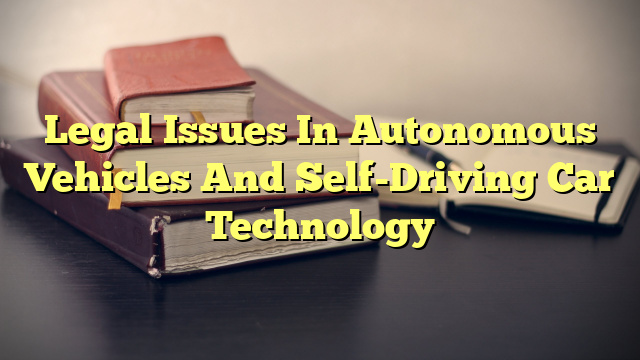Autonomous vehicles, also known as self-driving cars, are vehicles capable of sensing their environment and navigating without human input. Autonomous vehicles have the potential to revolutionize the way people travel, the way goods are delivered, and the way society functions. But with this potential comes legal and ethical questions, which need to be addressed before self-driving cars become mainstream.
Table of Contents
- What are the ethical concerns with autonomous vehicles?
- Are autonomous vehicles legal?
- What are the ethical dilemmas mentioned about autonomous or self-driving cars?
What are the ethical concerns with autonomous vehicles?
The ethical implications of autonomous vehicles are complex and varied. One of the most pressing ethical concerns is the possibility of an autonomous vehicle making decisions that may cause harm to people, animals, or property. This raises questions about how exactly to program an autonomous vehicle to deal with these ethical dilemmas, and who should be responsible for any harm that may occur.
Another ethical concern is the potential for autonomous vehicles to be used for malicious purposes, such as for the transport of illegal goods or for terrorism. Autonomous vehicles also raise questions about privacy, as they could be used to monitor or track people without their knowledge or consent.
Are autonomous vehicles legal?
The legality of autonomous vehicles varies from country to country and even from state to state in the US. In some countries, there are laws that specifically address the operation of autonomous vehicles. For example, in the US, the National Highway Traffic Safety Administration (NHTSA) has issued guidelines for the safe operation of autonomous vehicles.
In other countries, the legality of autonomous vehicles is less clear. Some countries are still in the process of developing laws and regulations for autonomous vehicles, while others have not yet begun to address the issue. In the absence of specific laws, some autonomous vehicle companies are operating their vehicles in a cautious manner, taking extra care to ensure the safety of their passengers and other road users.
What are the ethical dilemmas mentioned about autonomous or self-driving cars?
One of the most commonly discussed ethical dilemmas in relation to autonomous cars is the question of who should be held responsible for any harm that may be caused by an autonomous vehicle. Since autonomous vehicles can make decisions on their own, it is unclear who should be held accountable for any accidents or harm they may cause.
Another ethical dilemma related to autonomous vehicles is the question of who should be allowed to operate these vehicles. Should only people who have undergone special training be allowed to operate autonomous vehicles, or should anyone who is capable of driving a car be able to do so, regardless of their experience or qualifications?
Finally, there are ethical questions related to the privacy of autonomous vehicles. Autonomous vehicles can be equipped with cameras and sensors that can be used to monitor and track people without their knowledge or consent. This raises questions about how the data collected by these vehicles should be used, and who should have access to it.
Conclusion
The legal and ethical implications of autonomous vehicles are complex and varied. As the technology continues to develop, it is important to consider the potential implications of these vehicles and ensure that the necessary laws and regulations are in place to protect the public and ensure the safe and ethical operation of autonomous vehicles.

